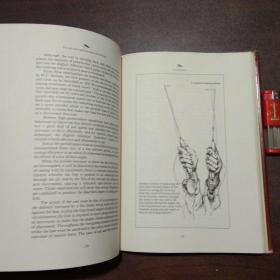Content:
As the seasons change and the temperatures drop, the landscape transforms into a serene winter wonderland. Among the many joys of the cold season, there lies the tranquility and satisfaction of winter fishing. However, as the water temperatures drop, the fish become less active, and the weather can be unpredictable, it requires a unique set of skills to catch fish during the winter solstice. Here are some essential tips and techniques to help you master the art of winter fishing.

Choose the Right Time: One of the most critical aspects of winter fishing is to determine the best time to fish. Fish are less active during the cold months, so the early morning and late afternoon are often the most productive times. These periods are when the water temperatures are slightly warmer and the fish are more likely to feed.
Dress Appropriately: Winter fishing can be an extremely cold activity, so it is essential to dress in layers to stay warm. Wear a thermal undershirt, a waterproof jacket, a warm hat, gloves, and a sturdy pair of boots. Do not forget to protect your face with a scarf or balaclava, as cold winds can cause frostbite.
Use Sensible Lures and Baits: In the winter, fish tend to become more cautious and less aggressive. Therefore, it is crucial to use smaller and quieter lures and baits to avoid startling them. Soft plastics, tiny jigs, and live bait such as minnows or worms are excellent choices for winter fishing.
Keep the Line Short: In the cold water, fish are less likely to chase down fast-moving baits. Therefore, it is important to keep your line short and your retrieve slow. A good rule of thumb is to maintain a line length of 10-15 feet. This allows you to present your bait more naturally and increases your chances of a successful catch.
Fish the shallows: During the winter solstice, fish tend to congregate in shallow waters where the water temperatures are warmer. Focus on areas such as river bends, weed beds, and submerged logs. These areas offer protection from the cold and provide food sources for fish.
Be Patient: Winter fishing requires patience and perseverance. Fish may be slow to bite, so it is essential to remain calm and focused. Take the time to observe the water and adjust your tactics accordingly. If you find that the fish are not biting, try changing your bait, lure, or fishing location.
Use Scented Baits: In the cold water, fish have a harder time detecting scents, so it is important to use strong, scent-based baits. Products like scented soft plastics, jigs, and live bait can help attract fish during the winter months.
Stay Hydrated and Nourished: Winter fishing can be a long and tiring activity, so it is crucial to stay hydrated and nourished. Bring a thermos with a warm drink, such as coffee or tea, and pack snacks that are easy to digest and high in calories, like granola bars or trail mix.
Keep Your Equipment in Good Condition: In the cold weather, equipment can become brittle and less durable. Regularly inspect your fishing gear and replace any worn-out components. Ensure that your reels are well-lubricated and your lines are strong and supple.
Have Fun: Above all, remember that winter fishing is about enjoying the outdoors and spending time with nature. Embrace the cold and embrace the challenge, and you'll find that winter fishing can be a rewarding and memorable experience.
By following these essential tips and techniques, you'll be well on your way to mastering the art of winter fishing. So, bundle up, grab your gear, and head out to the lake or river to experience the serene beauty and satisfaction of catching fish during the winter solstice. Happy fishing!












